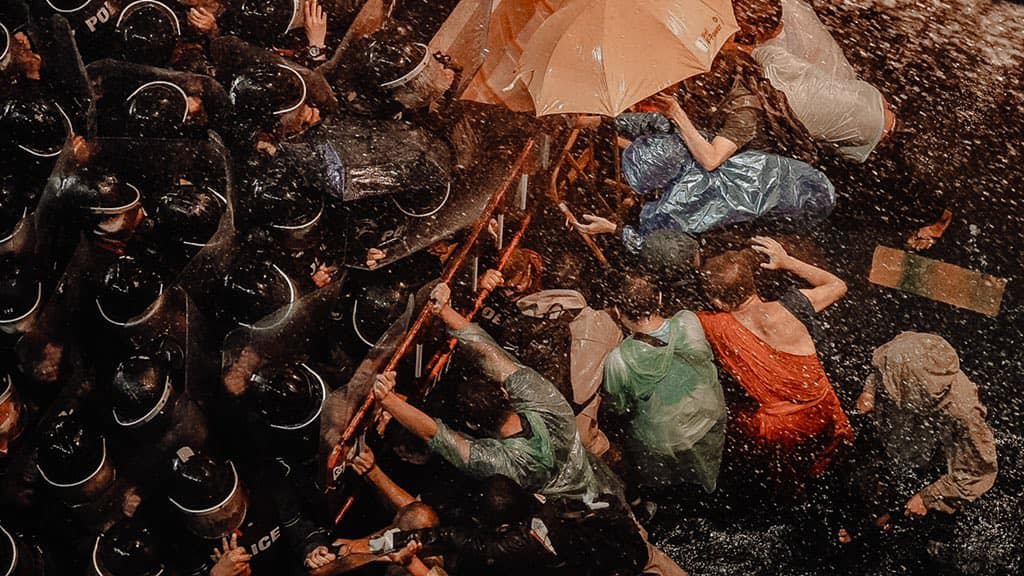|
Persistence is the word that most characterizes the protest movement in Thailand. Events of the last couple of days have made the front pages of newspapers worldwide. Those who read carefully may know more than I do, here where my access to news is limited by the self-censorship of the media and my distrust of them. However, for friends and family who have been wondering, here is my brief interpretation of what is going on.
Beginning with the military-controlled government’s liquidation of the main political party opposing them, students began protests to call for constitutional reform to restore democracy and to call for the Prime Minister to step down. That call expanded to include reform of the provisions in the constitution relating to the monarchy and release of people charged with undermining the monarchy or the government. But movements evolve. In the past, criticism of the monarchy as an institution and any members of the royal family was against the law, the rationale being that Thai culture rests on three pillars: the state, religion, and the monarch. The previous King was held in high esteem. Criticism of him was quite unpopular. But as of 4 years ago his son has become King. He has not cared for popularity. The protest movement about 6 months ago began the previously unheard of practice of calling for the King to return funds to public control which he had taken over. The movement took the form of large gatherings of students and young adults on a frequent basis, often in symbolic locations. Thai ex-pats began to draw attention to an additional list of grievances including the fact that the King and Queen spent most of their time in Germany without appointing a regent to act when the King is not in the country. Until this weekend the government has permitted the students to gather and say pretty much whatever they wanted. But the King and Queen have now returned, not just for a brief holiday, but for 7 weeks or longer. They have resumed public activities such as audiences and presiding at university commencement services. The government (meaning the central part that includes the Prime Minister as well as senior military leaders) would like very much for the young people to “go back home and attend to your business.” To underline this demand, twenty or so “leaders” of the student movement were arrested. But the demonstrations have continued. Crisis times came and passed without violence. Police have kept royalist counter-demonstrators separated. But it appears that now the government has decided to “up the ante” to use a gamblers’ term. Following an incident yesterday where the Queen’s motorcade was obstructed when it drove unexpectedly onto a street blocked by a group of demonstrators, last night police in riot gear put up road blocks and sprayed the crowd with a high pressure water cannon using water mixed with blue dye and a caustic substance (called tear gas by one source). A “Severe State of Emergency” was declared restricting public gatherings to no more than 5 persons. In defiance, thousands of students gathered Saturday at five locations in Bangkok, and other locations around the country including a packed crowd at Chiang Mai University. October is a deeply symbolic month. It is the month two previous student movements for democratic reform were put down by the military, killing hundreds (perhaps thousands). Once again it is the young adult generation that is persisting in challenging the powerful elite to include the people. “It’s our money!” the protesters shouted at the royal motorcade. The young people have changed the words of the national pledge, too. It used to be a pledge to uphold “the nation, religion, and King.” Yesterday they were shouting, “Nation, religion, people!”
0 Comments
Leave a Reply. |
AuthorRev. Dr. Kenneth Dobson posts his weekly reflections on this blog. Archives
March 2024
Categories |
| Ken Dobson's Queer Ruminations from Thailand |
|

 RSS Feed
RSS Feed
